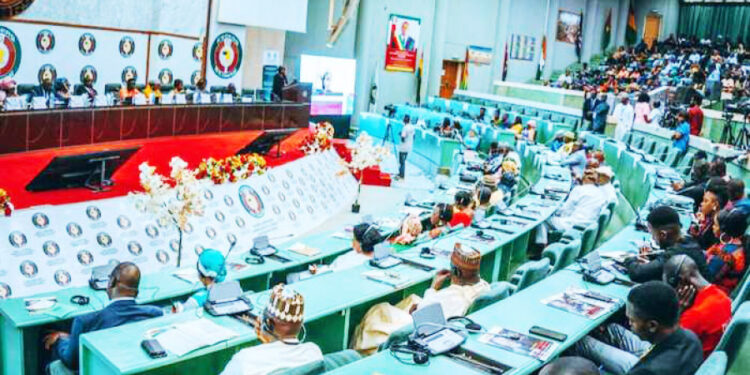Recently, the Economic Community of West African States (ECOWAS) lifted some of the sanctions it had placed on Mali, Niger and Burkina Faso where military juntas sacked civilian governments.
This is the latest development in the relationship between the body and the three countries.
A no-fly zone and border closures were among the sanctions being lifted “with immediate effect”, the president of the Economic Community of West African States (ECOWAS) Commission, Omar Alieu Touray, said after the bloc’s recent summit in the Nigerian capital, Abuja. He pledged to address existential threats facing the region and implored three military-led nations that have quit the bloc – Niger, Mali and Burkina Faso – to rescind their decision.
The trio have had tense ties with ECOWAS since coups took place in Mali in 2020, in Burkina Faso in 2022 and in the Republic of Niger on July 26, 2023. All three were suspended from ECOWAS, with Niger and Mali facing heavy sanctions. However, rather than seek rapprochement with the group, the three quickly moved to form an Alliance of Sahel States to work together on issues of security and to live independently of ECOWAS.
The frosty relations between the trio and ECOWAS culminated in their withdrawal of their membership of the sub regional body with immediate effect, citing unfair treatment and a lack of understanding and support from the bloc in their plight. They also accused the body of pandering to the whims of external powers to the detriment of the peoples of the sub region.
But in his opening remarks at the start of the summit, ECOWAS chairman, President Bola Tinubu urged Niger, Mali and Burkina Faso to reconsider their decision and not to perceive the organisation as the enemy.
Not a few knowledgeable persons found fault with ECOWAS overall handling of the matter, especially as it had been unable to help the affected countries resolve the internal political, economic and security crises that the coupist had claimed as the spur for their intervention, more so as the coups had massive street support.
They also pointed out the dire security and economic implications of that separation for both ECOWAS and the estranged countries.
ECOWAS’ response was to express confidence in its ability to continue diplomatic engagements towards amicable resolution of the matter.
Recently, a former Nigeria head of state and one of the founders of ECOWAS in May 1975, retired General Yakubu Gowon, had written a letter to the bloc, on behalf of all the founding fathers of the Community, urging the ECOWAS Authority of Heads of State and Government, including the leaders of the three ousted countries, to put aside their differences and reunite for the peace, stability and prosperity of the sub-region.
“ECOWAS is more than a coalition of States; it is a community established for the good of our peoples, based on shared history, culture and tradition. Neither my generation nor present or future generations will understand or forgive the breakup of our Community.”
ECOWAS said its decision to lift sanctions on the three countries was based on the need to maintain regional unity and security during this period of Lent and the approaching month of Ramadan, the holiest for Christians and Muslims, the two dominant religions in the West African sub region.
President of the ECOWAS Commission, Dr Omar Touray, said at the end of a recent extraordinary session of the ECOWAS’ Heads of State and Government in Abuja that in arriving at its decision the authority also considered the pleas from prominent leaders including General Gowon.
Explaining its volte face, Touray listed many other considerations for the wellbeing of ECOWAS and the three countries, including diplomatic, political, trade, immigration, developmental and international affairs where cooperation is needed.
As a newspaper we understand that this is a challenging time for ECOWAS leaders. A number of people may see their softening on the issue of sanctions as a sign of weakness, , especially since there is no subterranean moves by the excommunicated countries to reach an understanding with the regional body neither of the countries has shown any sign of remorse, instead they seem to have turned their backs on ECOWAS, happy to throw off any cloak of control from the organisation while enjoying the embrace of Russia which not only has cashed in on the divide to plant its feet on the sub region, but is promising to provide military support, both in arms and personnel (including mercenaries) – to the regimes towards prosecuting their campaign against Islamists. Also, Russia is not likely to hold the democratic stick with the leadership of the totalitarian regimes.
Maybe instead of the one-sided rapprochement ECOWAS has embarked upon, it would be better for the bloc to reinvent itself and provide alluring structures that members would not want to be left out.
But having already offered the olive branch, ECOWAS should follow up with diplomatic shuttles to Niamey, Ouagadougou and Bamako to achieve a closure to the divorce. The military leaders in the three countries should see this as an opportunity to reintegrate with their kith and kin in the sub region. As a newspaper, we believe that a united ECOWAS is the best option for both sides of the divide. After all, they say, blood is thicker than water.



